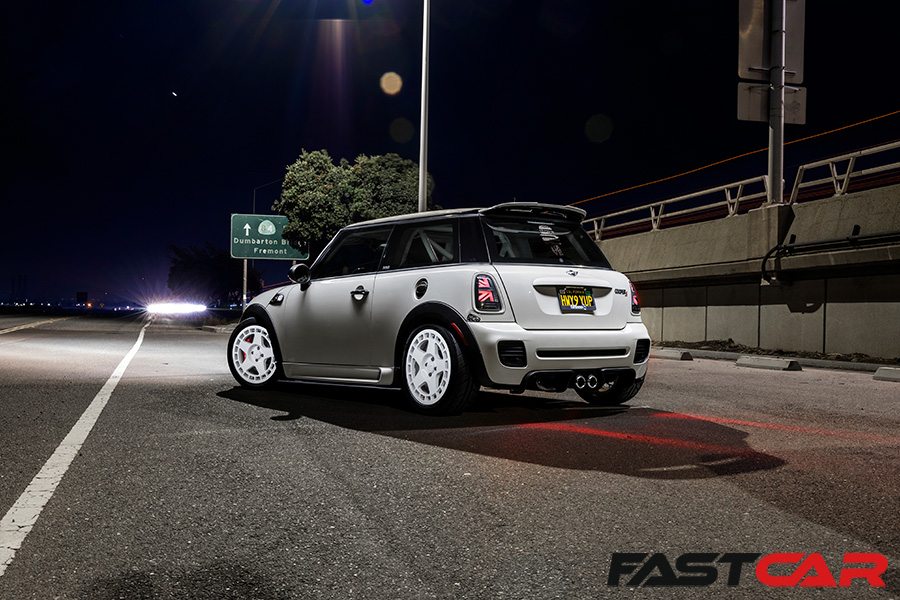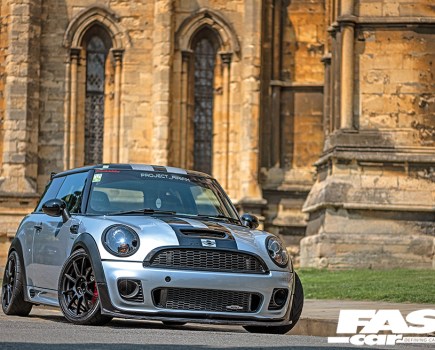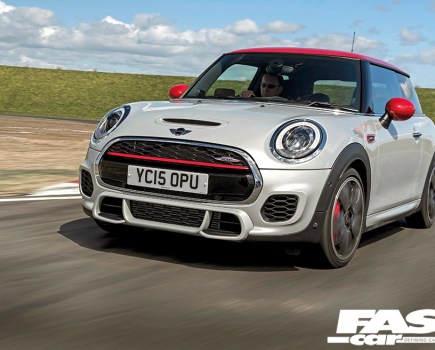With 200bhp just a simple remap away and much more potential beyond, here’s our quick-fire Mini Cooper S R56 tuning guide, for all your modifying needs.
Following the success of the first-generation R53 Cooper S, which went on sale a year after the One and Cooper in 2002, Mini thankfully didn’t make buyers wait as long for its replacement, as it was one of the first models available from November 2006. As with the standard R56, the fastest second-generation Mini ( until the John Cooper Works came along later), was more of a clever rework than a new model. Outside, legislation dictated an 18mm taller shoulder line, but this is also 60mm longer, equaling an extra 10-litres of boot space.
The biggest change was under the bonnet, as the supercharged Tritec 1.6-litre petrol was replaced by a turbocharged version of the Peugeot/Citroen(PSA)-supplied ‘Prince’ N14 1.6-litre engine. At launch, the Cooper S boasted 175hp and up to 192lb ft of torque, thanks to the clever ‘overboost’ function, where for a short period the turbo boosts above normal pressure.
The result was acceleration to 62mph that took just 7.1 seconds. Yet, despite the performance, features such as the BMW VANOS system resulted in a combined consumption figure of 40.9mpg, broadening the Mini Cooper S R56 appeal to hot hatch buyers that hadn’t considered it before.

John Cooper Works Mini R56
With over 170hp, the Mini Cooper S R56 was quick out of the box, but it wasn’t long before John Cooper Works (JCW), now under Mini control, had a performance kit available for the new car.
Launched in 2007, like the R53, it included a different exhaust, airbox and ECU, resulting in a power hike to 192hp and 199lb ft of torque. A rare kit, this was maybe because of the high price and the incoming full-production JCW model.
Thankfully for owners, aftermarket specialists have worked on a number of replacement parts for the R56, with big 400hp+ builds now possible. We take a look at some of those options in our quick-fire Mini Cooper S R56 tuning guide.
First, make sure you check out our R56 buyer’s guide if you’re looking to buy one of these mighty little pocket rockets.
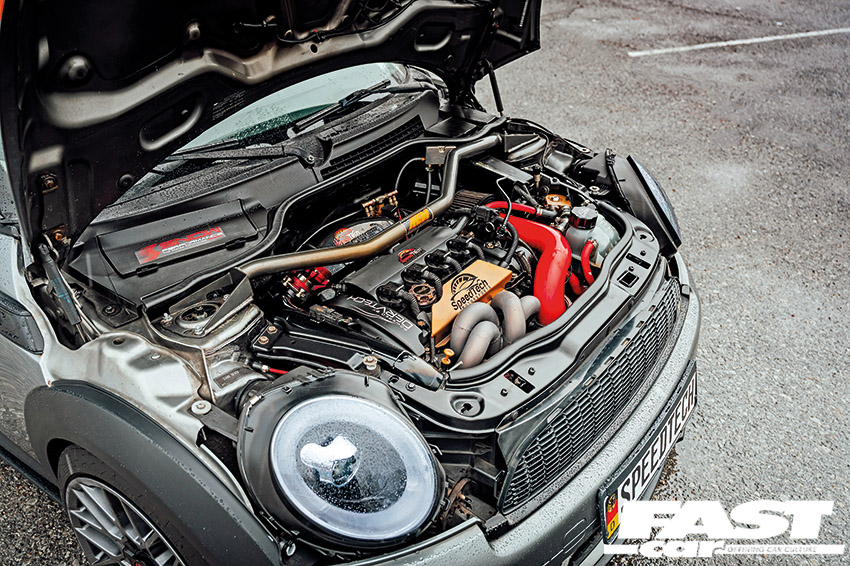
Mini Cooper S R56 Engine Tuning
Despite the R56 Cooper S’s engine failings, it does respond very well to tuning. The simplest way to release more power is via a remap. Prices start from £360 at specialists and can equal up to 40hp more from Stage 1, depending on the other modifications fitted. Although, if you go as far as a Stage 3 tune, you’ll have to fit an uprated intercooler, turbo, de-cat and/or high-flow sports exhaust and induction kit – but the result could be up to 300hp.
If your thirst is for this level of power from your R56 Cooper S, it’s worth considering forging your Mini’s engine internals, although this is expensive, with kits costing around the £5k-mark. If you go to Stage 3 you’ll need a hybrid turbo, which, again, is an expensive modification at over £2000. A cheaper alternative for a lesser tune is to fit a JCW turbo, but this is still costly at over £1000 new, although second-hand they are half that price.
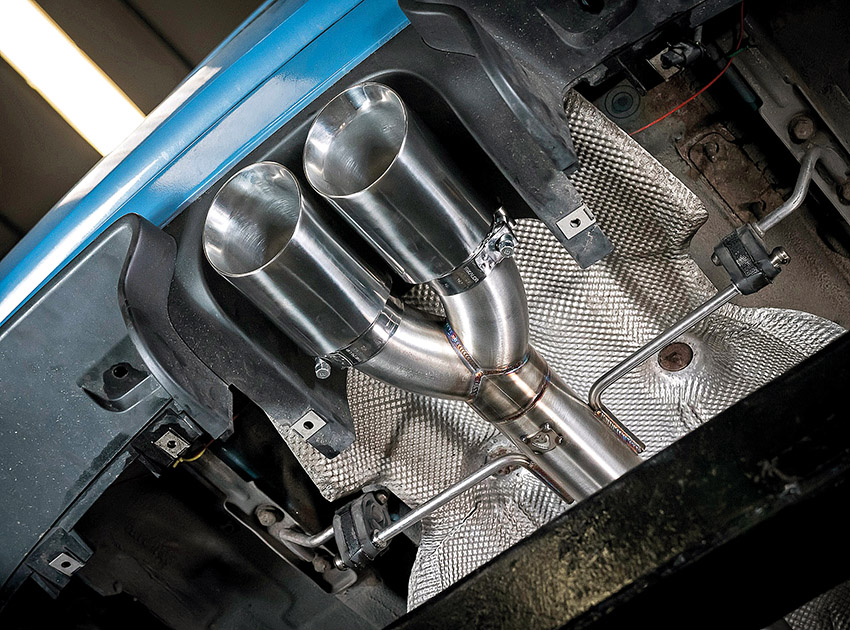
Affordable Engine Modifications For The Mini Cooper S
If you’re not keen on going so far or spending so much, more affordable bolt-on items such as induction systems will still see power gains. Even just a panel filter can give a few more horses, or if you’re looking for an OEM solution, an airbox from a JCW will fit, with prices starting at £120 second-hand. The extra performance will create more heat, especially for mapped cars, so an aftermarket front-mounted intercooler will cool the boosted air from the turbo, equaling more power and torque, with prices at specialists starting at £350.

No less important is the exhaust, which can be easily improved with the better system from a JCW. This is quite cost-effective, with prices starting at around £250. You can go further, with a simple resonator delete, that increases the pops and bangs from the exhaust, so loved by owners, or more seriously a Sports cat, although at over £800, you’ll need deep pockets.

Brakes and Suspension Tuning
A set of decent brake pads will improve the stopping power, but an easy and cost-effective upgrade is a set of Brembo JCW calipers, with used prices starting at around $/£500 for a second-hand set. Given the popularity of the R56 as a platform for modifying, there are plenty of other aftermarket options too, such as the AP Racing big brake kit seen above (£1600).
Suspension is another key area of improvement – lowering springs start from around £150 and will sort the stance. Or, if you want to go further, decent sets of coilovers start at about £650. A wheel and tire upgrade can make a big difference to the looks, either OEM or aftermarket depending on budget.
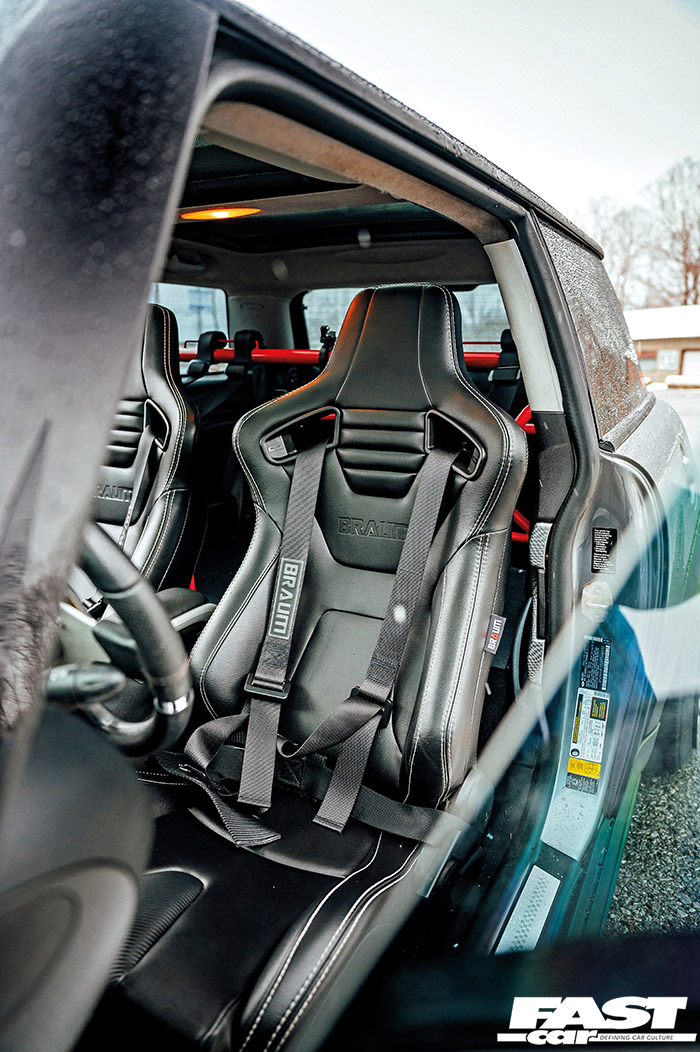
Interior and Exterior Mods
Elsewhere, Mini’s OEM Aero kit, which was fitted to the JCW and GP still looks good, especially when combined with a rear wing, such as the GP-like Orranje G-Wing.
Inside, the Cooper S’s sports seats are both comfortable and supportive but can be easily upgraded if you want to, with a set of buckets, the cheapest costing from around £200.
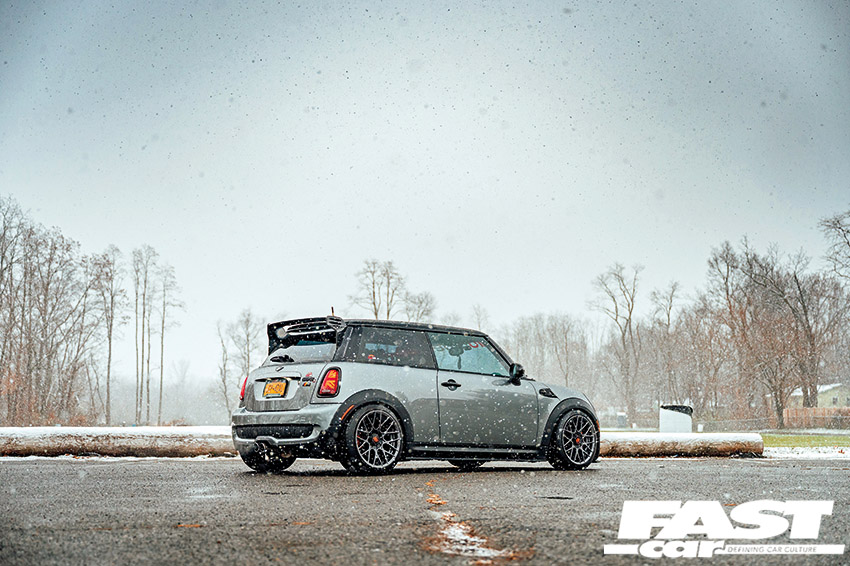
Verdict
With prices for the first-generation R53 Cooper S’s on the increase due to their almost classic status, the R56 Cooper S now seems great value, as long as you’re aware of the N14 turbo engine’s issues, while its tuning potential makes it very appealing.
Despite its faults, the engine is easily repairable, and with a plentiful supply of second-hand performance parts and upgrades, you can increase the power reasonably cost-effectively. The Mini Cooper S R56 still looks stylish, is fun to drive, even as standard, but more so when tuned, and yet is more affordable to run. No wonder it remains so popular.
Guide from Performance Mini magazine. Words: Martyn Collins. Photos: Matt Andrews, DJM Photography, Ethan Haynes, Kirill Samarits, Jason Dodd.
If you love Minis then why not check out our premier Trax event? We’re organising a special Mini Zone for all Mini owners to be a part of. Check out more information about the Mini Zone here.

